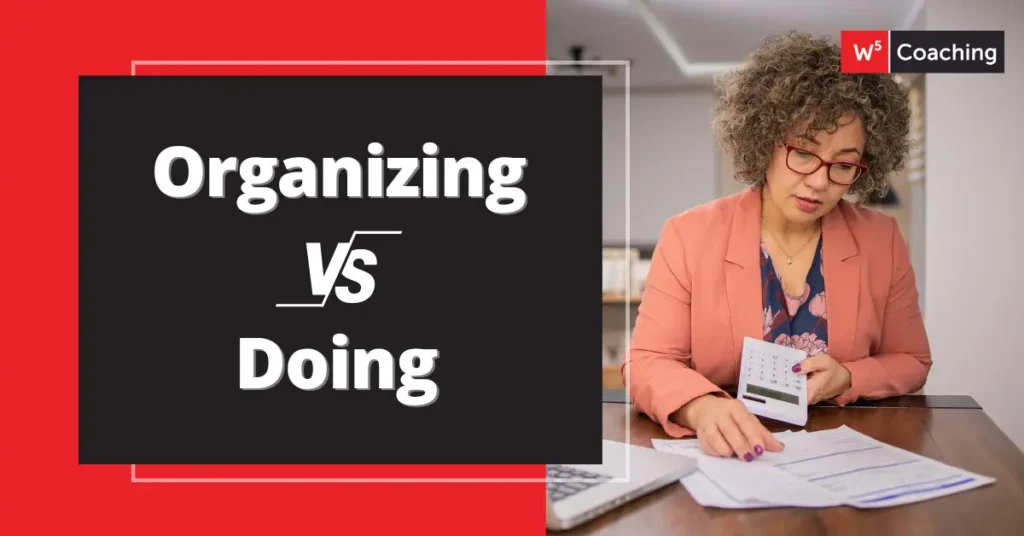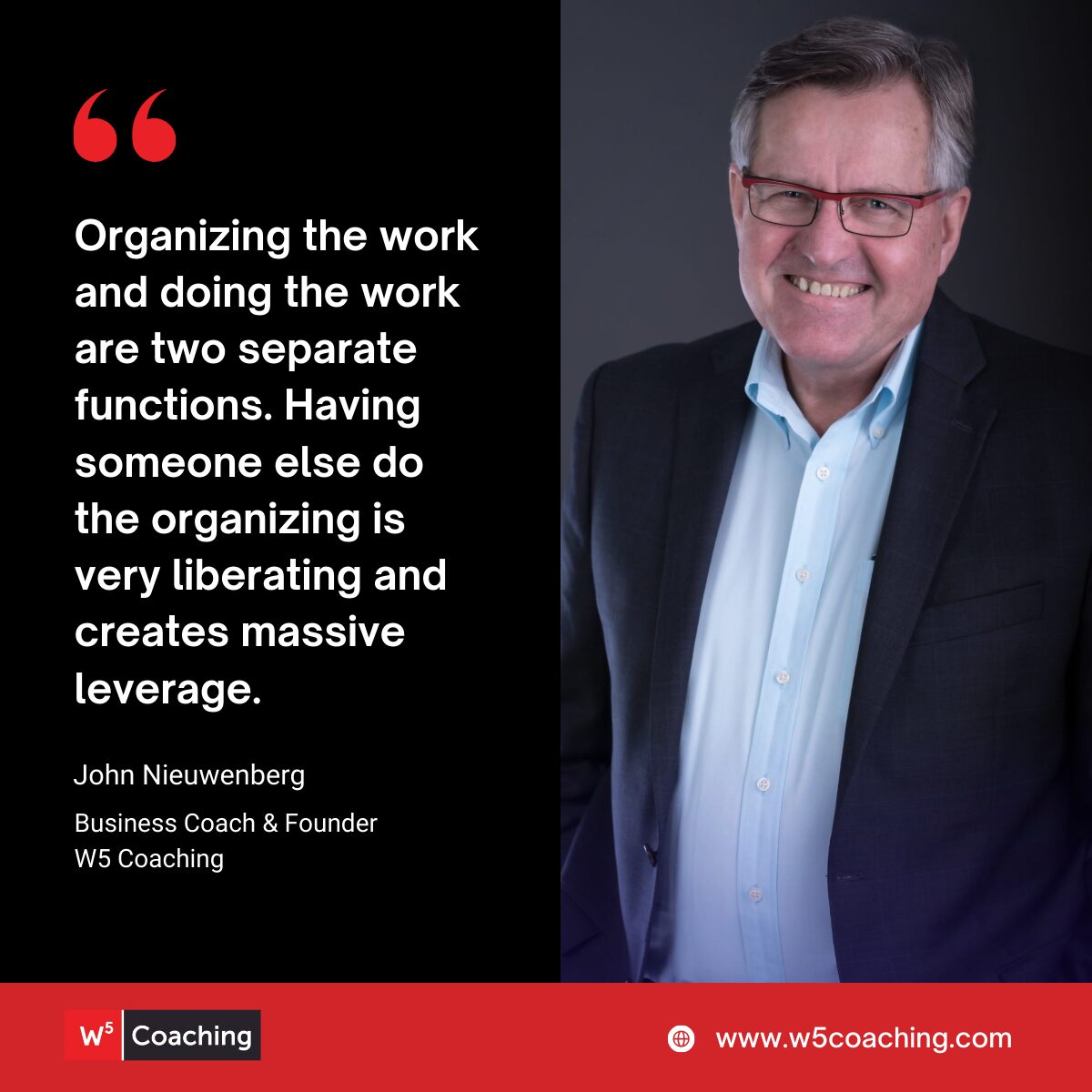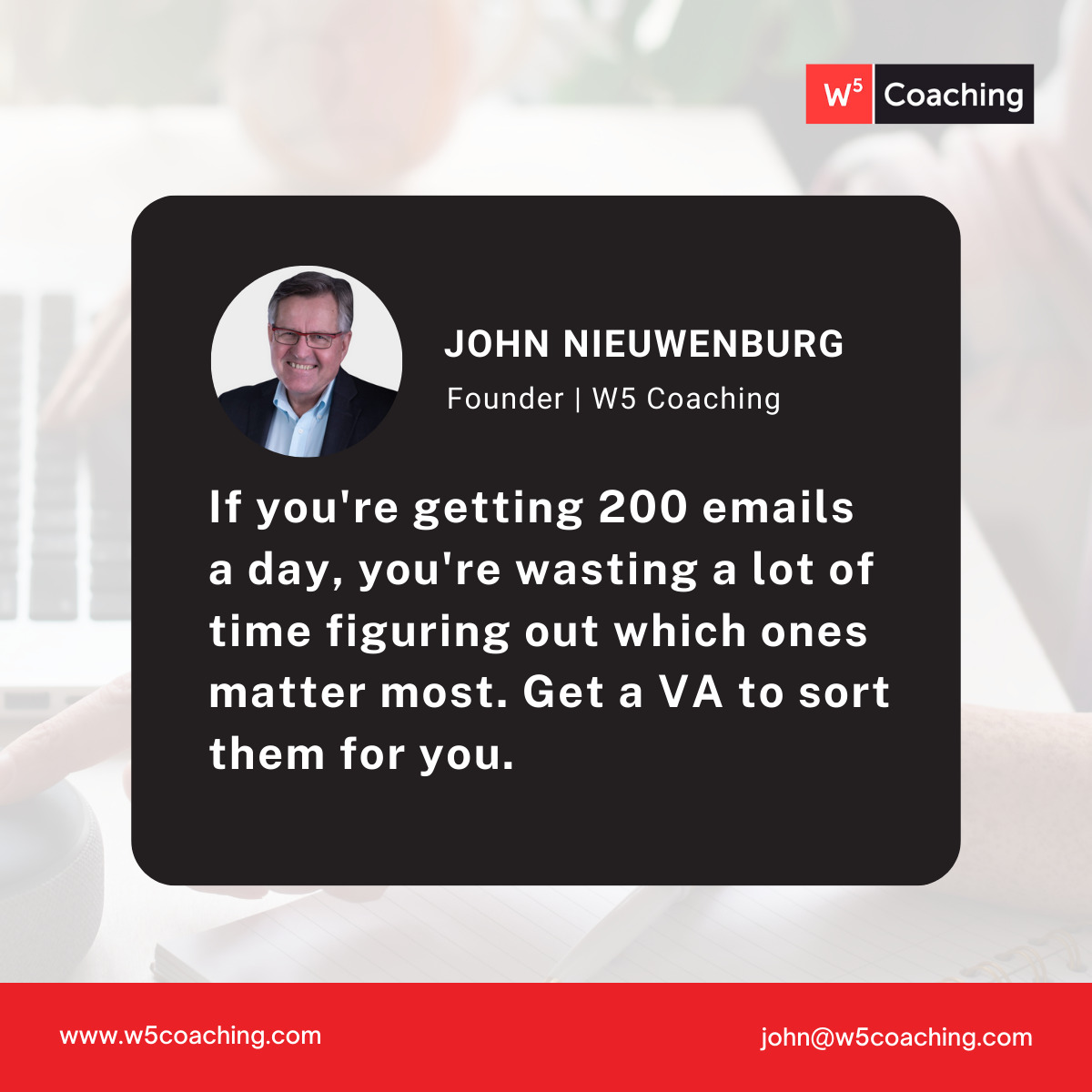How to Free Your Time and Create Massive Leverage by Changing How You Work

The business owners I work with often come to me complaining about feeling overwhelmed and short on time.
They have too much to do. There aren’t enough hours in a day. Their team needs them for every little thing.
My first piece of advice is usually this: “hire a VA.”
Some owners agree that having someone take stuff off their Oh Sh*t list would be helpful.
But many of them don’t really understand the value of having a VA. Or how to work with them.
Because while getting a VA to look after simple administrative tasks is a good start, it’s only scratching the surface of what they can do for you.
A good Executive Assistant works as a capable right hand.
They’re not your boss, but they take on the role of managing your time and schedule for you.
They help keep you focused and on track – freeing up your time and energy to work ON your business instead of IN it.
One of the ways they do this is by filtering and organizing.
The work that you need to do as an owner can be divided into 2 parts.
There’s a filtering and preparation part that needs to happen before the actual thinking and decision making part.
I first discovered this years ago back when my bank would send me a paper statement along with cancelled cheques.
I’d need to open the envelop, review the statement and the cheques, and reconcile it with my own records.
This took 30 or 45 frustrating minutes focusing on a highly detailed task I didn’t enjoy. When I finished the reconciliation, I’d cross it off my list and throw my chequebook into a drawer. Done until next month!
Later, when the forerunner to Quickbooks was released, reconciling a bank statement could be done with the click of a few buttons.
At first, I was simply happy to get that 45 minutes of my life back. Then I realized, I could put that time to good use by spending some time reviewing and thinking about my financial situation.
Was I on budget? Was I making progress towards my goals? Was I over-spending in some areas? What could I do to adjust my behaviours in this area to get better results?
This is what it means to run your business like a CEO.
When you run your business like a CEO, you get other people to do the organizing, preparing, and filtering for you – so that you can focus on the important work that only you can do.
Here are 3 places where you can engage a VA or EA to do this.
1. Filtering and Organizing Your email
 If, like a lot of my clients, you get 100 or 200 emails per day – you’re wasting a lot of time sorting through them.
If, like a lot of my clients, you get 100 or 200 emails per day – you’re wasting a lot of time sorting through them.
Sorting and filtering email is an ideal task for a VA.
The assistant can triage your emails into 4 folders:
- Things YOU need to look after
- Things the VA can do with some direction
- Things the VA has already taken care of
- Anything you might like to read
The only folder you need to look at daily is folder #1.
Schedule a standing daily meeting with your VA to handle folder #2 (this folder will diminish over time as your VA learns more about how to support you.)
Periodically check folder #3 so that you know what your VA has looked after in case there’s something in there that you should be aware of.
Now, instead of having 200 emails to sort through, you might have only 12 that need your attention and response.
2. Conducting Research
Need to replace your widget manufacturing machine? Or hire a new bookkeeping service?
Ask your VA to do the initial research and come back with a report summarizing the top 5 options that meet your criteria.
Instead of wasting your time googling and reaching out to get information and pricing, this can all be looked after for you.
If you need to hire someone, you can ask your VA to screen the resumes and create a shortlist – or even conduct the first round of interviews.
Now your job is reduced to reviewing the options and making a decision.
3. Preparing Reports
Good decisions start by having the right data.
Similar to my experience with having the computer balance my chequebook, what if you got your VA to pull together some monthly reports for you to review?
This might mean getting information from your sales pipeline so that you can see whether you have a sufficient volume of leads and potential sales.
Or gathering numbers from your production and delivery systems to see whether the jobs you’re shipping out have a sufficient margin.
Or liaising with your accountant to develop cash flow projections or financial comparison reports using common size financials.
If you want to run your business like a CEO, you need to start thinking like a CEO.
No successful CEO spends their time doing $10/hour administrative tasks.
Instead, they hire a competent and capable Executive Assistant (or Virtual Assistant) to look after these things for them.
When you get an assistant to filter and organize and prepare your work for you, you not only free up time – you also create an opportunity to gain massive leverage by using that time to make your business more successful.
If you’d like to speed up the process of taking your business to the next level – consider getting some support from an experienced business mentor.
You can click here to book a free 15-minute call to discuss coaching: book a call with John

Build a Self-Managing Company
How to build a business that runs smoothly, profitably, and (mostly) without you.
Feeling stressed out and overwhelmed with a business that is taking all your time - and not giving you enough in return?
Are you finding it challenging to hire the right team (and get them to do the right things)?
I wrote this little guide for you!
Enter your details below to receive your free copy!
